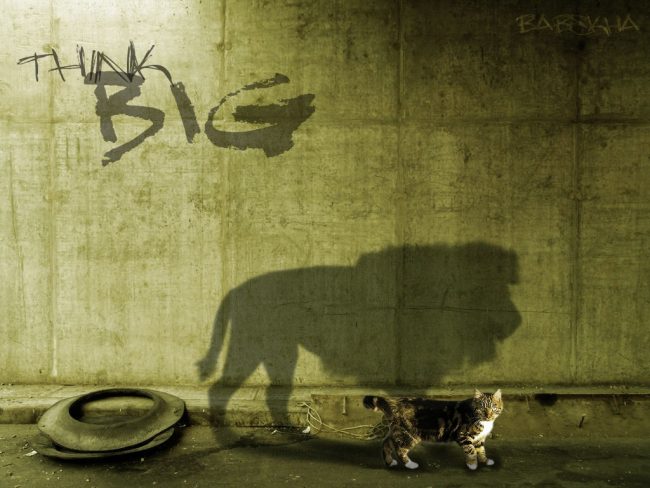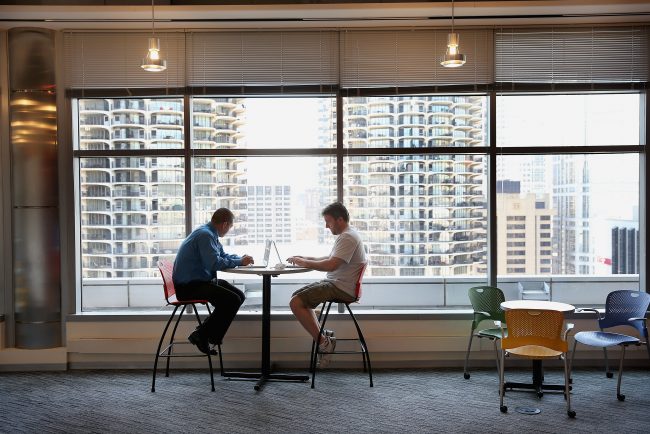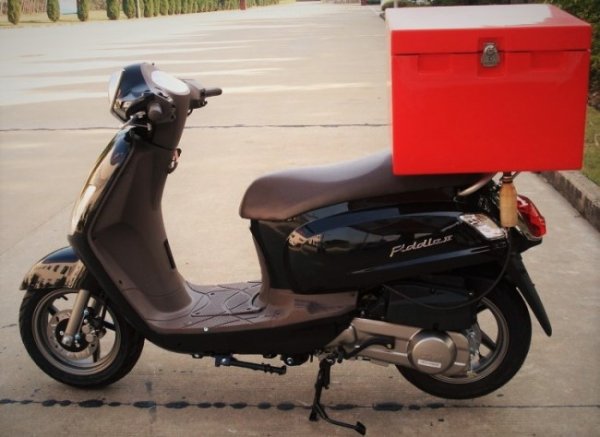
It is not an easy thing to build a startup in Sri Lanka. The industry, and perhaps more importantly, the community, is young, though growing fast. Any new industry comes with its own growing pains, and so it is with startups in Sri Lanka where the ecosystem itself is unique. As a developing country, growth happens here at a faster, more staggered pace than developed countries who’ve already been through the whole lifecycle of new industry development. So the startup industry, combined with Sri Lanka’s unique cultural context, makes for turbulent circumstances.
We spoke to a few people involved in the industry to find out the challenges startups typically face, what they need to know to grow, the common mistakes made, and the areas in which the industry needs to mature. We spoke to:
Lahiru Pathmalal ‒ Lahiru not only has a Masters in International Relations but is also the CEO of Takas.lk, one of Sri Lanka’s largest online retailers. He is very involved in the startup community.
Chalinda Abeykoon ‒ Chalinda is a startup evangelist and strategist who runs Crowdisland, Sri Lanka’s first equity crowdfunding platform
Sam De Silva ‒ Sam de Silva is co-founder of Common Edge Pvt. Limited, a venture builder focused on emerging markets, and is also co-founder of Spike, a monthly meet up for the startup ecosystem.
Here’s what they said.
Startup Ideas

Think Big. Image source: ourgom.com
Almost everyone feels that they have the next biggest idea. It’s an intellectual game we play whenever we read about a new startup or attend a hackathon final: “I bet my idea would blow everyone else’s out of the water.” We then hoard these ideas like Smaug on his pile of gold, waiting for the day when we burst out of our office chairs in entrepreneurial enlightenment. Or we hang on to them as a sort of cognitive capital, feeling pleased as punch. But how much are ideas worth, really? And is the startup community having the right kinds of ideas?
Founders are afraid to share ideas, assuming perhaps, that other people might steal them. But this rarely happens, and investors in general don’t want to steal ideas. Most investors put their money behind founders and not so much on the idea itself, so founders should share their ideas more openly, which is better for the community and makes it easier for investors to make decisions. ‒ Lahiru
Startups in Sri Lanka are still not thinking big enough. Most of the ideas coming out are very specific for the country, but the Sri Lankan market is too small for any international investor to take notice of. Startups should start building on concepts that have more regional and global application. ‒ Lahiru
Knowing Your Business Basics
Startups may begin with ideas, but ultimately, they have to be managed and run like proper businesses. After all, bills don’t pay themselves. Sam had a lot to stress about the importance of startups knowing business basics, to be able to run efficiently.
Startups need to understand the basics of business validation before building anything. That way, they’ll know if their idea could actually work before expending a considerable amount of resources on it. ‒ Sam
The difference between a startup and an SME is that a startup needs to be able to scale very rapidly. This scalability needs to be built into a startup plan. ‒ Sam
Founders need to learn the basics of operating a business, how to handle budgets, deal with vendors, suppliers and develop contacts, as part of running their company. Basically, they need a Business 101 programme that will help them make right choices, and gain a sensitivity for business decisions. ‒ Sam
Investors And Fund Raising
The biggest question on every founder’s mind, is money. How they could raise funds, where they should raise funds from, and that all important equity split. Startups are the organisational equivalent of Madonna’s Material Girl; they just keep on needing. These needs have to be managed, if a startup is to grow well.
Founders may dilute their company too much in the effort to raise funds. At the seed level, they should negotiate the best possible terms which would aid them in the long run. Mature investors would understand this, and not pressure startups into too much dilution too early. It just reduces chances of further fundraising. ‒ Lahiru
Founders are splitting equity right from the beginning. They do not know about vesting schedules, which are a way of protecting equity over time to make sure all founders are aiming at a single goal, and no one runs off with half the shares even before the company gets off the ground. ‒ Chalinda
Money raised from investors needs to be managed properly. It can’t be spent without a proper plan. ‒ Chalinda
Startups tend to raise money before their idea is actually validated. Founders should only raise funds when their idea has traction, so they, and investors, know there is something concrete to spend on. ‒ Chalinda
Sometimes investors don’t have an understanding of the socio-economic context of Sri Lanka, which can be a problem when it comes to negotiating investment. It’s necessary to understand the economic context in which a startup is operating, when investing. ‒ Chalinda
Incubators And Support Mechanisms

Startup incubators. Image credit: Scott Olson/Getty Images
Some cities, Tel Aviv for instance, run more incubators than a maternity ward. Sri Lanka, not so much. But how important are incubators, hackathons and accelerators to the Sri Lankan startup community? Are there enough support mechanisms for startups to grow, and do they provide the right sort of support founders need?
Most of the incubators and startup programmes target undergraduates and very young people. Older entrepreneurs are often ignored, but a successful startup really needs some maturity to run well. ‒ Chalinda
Startup competitions don’t have follow-up programmes. Everything ends at demo day, and the prospective founders have no further guidance. That leaves startups with an idea that has some validation through winning a competition, but no indication of how they should further proceed with it. ‒ Chalinda
To give startups a better chance at succeeding, the ecosystem needs dedicated incubators to help build and nurture startups through their growth process. ‒ Sam
Taking part in too many competitions instead of focusing on product and development can be a waste of time. So while these competitions and hackathons are a great way to start, the purpose of a startup is not about competitions. ‒ Chalinda
Founders need to be connected to business coaches – experienced people who would give them practical advice on how to run a business properly. This could be day-to-day decisions like hiring, proper accounting procedures, and due diligence. ‒ Sam
Some people may be born with the proclivity towards entrepreneurship, but entrepreneurs are largely made, not born. Prospective founders need to be taught to think like entrepreneurs, through programmes created for this purpose. ‒ Sam
The execution stage can be very difficult for startups, who need support from organisations like ICTA, and even dedicated incubators to help them get their product out there effectively. ‒ Sam
The Product And Market Needs
An idea, no matter how great, is worth nothing if no one wants it. A good eye for market needs is vital for a startup, and an understanding of how to create and adjust a product to meet users’ needs, essential.
Startups not adopting proper customer development strategies is a problem. There’s too much focus on the product and very little on customer validation or acquisition. Going out and getting feedback is important. ‒ Chalinda
Startups need to cater to an existing market need, or they won’t have any customers or demand for their product. Either that, or they need to create a new market altogether. ‒ Sam
Building everything from scratch is often not necessary. It’s time-consuming, especially when you can use existing resources, like code repositories, or hardware components already available. These can all be incorporated to speed up product development. ‒ Chalinda
Building A Team
The most important part of a startup is the team. The team is where the skills come from, the drive, the direction for the product, and it is ultimately who investors bet on.
Complementing skill sets are not developed on a team. Some startups only have developers, who are then assigned to handle business and marketing functions. A multi-disciplinary team is needed to be a successful startup. ‒ Chalinda
It’s important to learn how to work with co-founders, because friction in the ranks slows down or even crashes a company. ‒ Sam
Conclusion
The Sri Lankan startup community is in a very unique position because of the rapid growth of industry and the specific context it is developing in. It will mostly likely go through stages of flux before settling on its own particular brand of culture. The industry veterans we spoke to see challenges in the industry that need to be overcome, but also see the community heading in a largely positive direction, which promises to do wonders for the economy.








